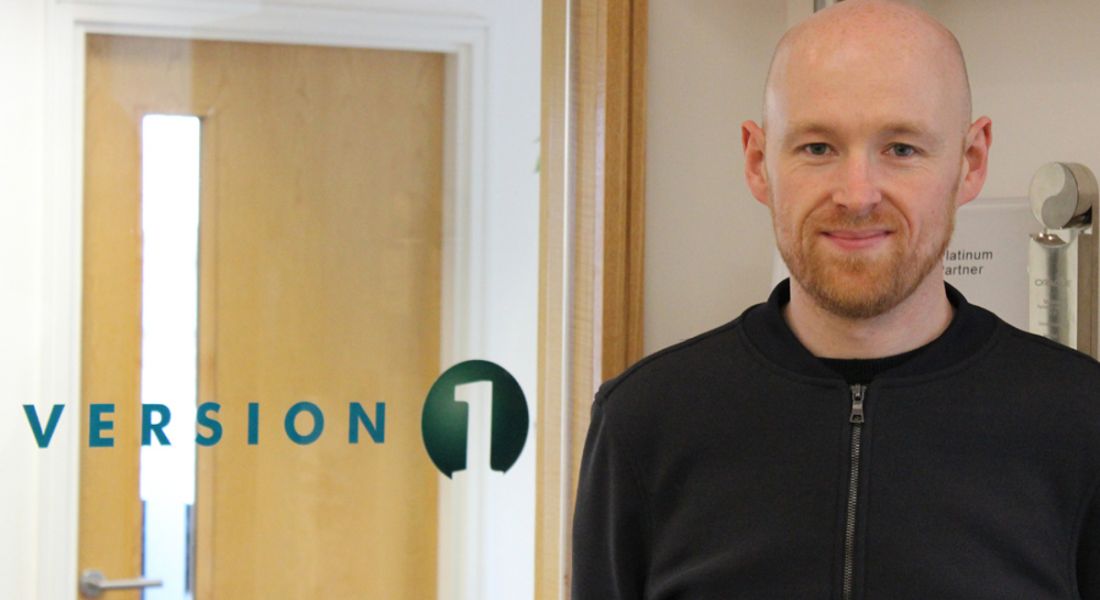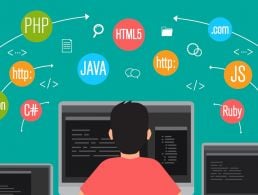You might be able to list off a ream of tech job titles, but do you have any idea what the jobs entail? Sometimes, you need to delve a little deeper.
Barry Evans, a senior applications consultant at Version 1, tells us about his daily work coding and developing applications.
What is your role at Version 1?
Senior applications consultant. Most of my time is spent developing with Java 7 SE, the Spring Framework, Java Message Service (JMS) systems and Oracle databases.
Can you tell us about your background?
I have had a keen interest in computing since a very young age. I got my first computer – a Sinclair Spectrum ZX 128k – when I was seven years old, and I have been coding ever since.
I read for a BEng in Computer Science at Queen’s University Belfast. Since graduating, I have worked on various projects with a wide range of companies, from one-man startups to large tier-one banks like HSBC and UBS, and a few other companies in between.
In the past five years, I have been involved in roles in the fintech sector, as I find the financial markets domain to be a challenging and applicable industry to work in – one that usually adopts the latest technology trends relatively quickly.
What steps led you to this role?
After working in London for several years, my family and I moved our base back to Belfast temporarily. Rather than relocating back to London with my family, we decided to look at Dublin, as it was a more attractive location, both from a quality of life perspective – a smaller, more manageable city – and for the number of potential employers, Version 1 in particular, that I could target.
If there is such a thing, can you describe a typical day in the job?
I start the day at 9am by checking emails and reviewing any to-dos from the day before, and then prepare for my team stand-up meeting at 10am. After the stand-up, I proceed to work on my assigned tasks for the day, some of which could include engaging with an analyst to confirm requirements are correct, developing Java code, or writing automated tests to validate that code is correctly implemented according to specification.
Another key part of my role is to get involved in peer code reviews. This is a great way to share knowledge across the team, from both technical and non-technical angles. It all helps to make the team more cohesive and productive.
My team also does bi-weekly retrospective meetings to review how we performed in the previous two weeks. The aim of these meetings is to come up with ways to improve, or to identify things we should keep doing.
What types of project do you work on?
I am currently working on a project for a UK-based asset manager. The main focus of the project is to implement and support automated message-driven applications that provide an integration layer between many disparate systems within the organisation, using a number of technologies including Java, Spring, JMS, and Oracle databases.
The applications we enhance and maintain are responsible for moving millions of pounds every day between several financial institutions, so it is critical that all the functionality we develop is extremely well tested before any change makes it in to a production environment.
What skills do you use on a daily basis?
A wide range of technical and non-technical skills are required to get the job done on a daily basis.
We work in two-week sprints on my team. At the beginning of a sprint, some analysis is required to understand and help to give direction, and to verify the requirements given to me by the business-facing analyst. Once it is clear what needs to be done, it is then a matter of adding additional functionality to an existing application by developing Java code and supporting automated tests.
Do you have any productivity tips that help you through the working day?
Using a tool like Microsoft OneNote is a great way to keep track of my to-do list – especially when I am switching context between coding bursts – and it is also good for taking notes quickly to help me prepare for upcoming meetings.
Post-it notes are a godsend!
How has this role changed as the sector has grown and evolved?
I would say that it is important to keep up to date with current technologies like Java 8 and recent versions of Spring. Also, some alternative products like NoSQL databases are starting to make an appearance in the sector.
What do you enjoy most about the job?
The most enjoyment I get from my job is the problem-solving aspect. Using best practices to help people become more productive or removing error-prone processes by implementing well-tested code gives me a sense of achievement.
Spending time to learn about the intricacies of technologies such as Java and Spring, and then being able to apply them in the real world to automate processes – such as moving large amounts of money in the financial sector – is a rewarding experience for me.
Looking for jobs in tech or science? Check out our Employer Profiles for information on companies hiring right now.




